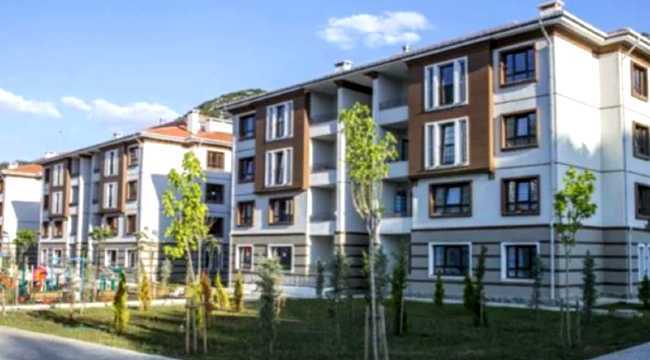Economy in Turkey: Central Bank proposes “Additional tax for those with multiple homes”

Bad news for those with multiple properties and those relying on rental income… The Central Bank has suggested to the government the implementation of a gradual additional tax for those with multiple properties.
While there has been talk of the government imposing taxes on citizens immediately after the elections, the first indication of new taxes came from the Central Bank of Turkey (TCMB).
Additionally, the Bank proposed that companies serve as an alternative to individuals who rely on renting out multiple properties for income, suggesting a shift to a model of ‘shared tenancy.’
The Central Bank made its concrete recommendations for curbing the increase in housing prices public through its latest inflation report.
Stating that the 25% limit on rent increases has been insufficient in preventing price hikes, the Central Bank called for more effective structural measures. These include centralized monitoring of rents, mandatory standardization of rental agreements, and the implementation of new regulations to ensure the healthy functioning of the rental market.
The Central Bank listed the new regulations that the government needed to implement in this area as follows:
“With the upcoming legal regulations; gradual taxation based on the number of owned properties and vacant property tax… Implementation of long-term, variable interest rate, or threshold-indexed housing loan models with payment flexibility for individuals with regular income… Ensuring that the credits provided for housing purchases are offered at varying interest rates according to the number of properties owned by households… Steps taken in coordination with monetary policy are crucial for ensuring medium to long-term stability in the housing market.”
‘SHARED TENANCY’ SHOULD BE INTRODUCED
The Central Bank also suggested the adoption of models applied in various countries to help low-income individuals escape rental dependency.
In this regard, pointing to the ‘shared tenancy’ model implemented in London, the Central Bank stated, “For example, in London, first-time homebuyers can participate in programs called ‘shared ownership,’ through which they can purchase at least 25% of their first home and pay rent for the remaining share. They can later purchase the remaining shares of the house. Implementing the ‘shared tenancy’ practice, especially in major metropolitan areas where housing prices are high, could provide opportunities for households with insufficient savings to become homeowners.”
The Central Bank listed examples from other countries as well:
Netherlands: The public housing stock is allocated to various income groups at lower rents compared to those in the free market.
Italy: Rents for social housing are subsidized according to the income levels of those in need.
COMPANIES SHOULD BUILD AND RENT OUT HOMES
The report also suggested incentivizing private sector companies to contribute to increasing the number of rental properties. The recommendation was stated as follows:
“In addition to the public sector, the private sector building homes for rental purposes is another step towards increasing the supply of rental housing. Following examples observed in global housing markets, renting out properties by private sector companies alongside individual investors will increase institutionalization, making it easier to monitor, regulate, and tax rents. These companies going public through capital markets and diversifying their portfolios will reduce the risks faced by individual investors when renting out properties, providing participants with regular cash flow while also offering tenants protection from shocks in the rental market, even if their savings rates are low.”





